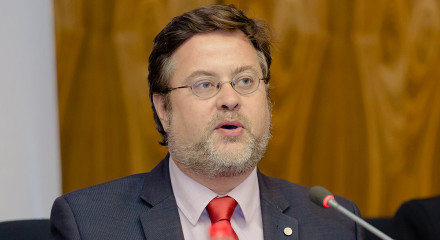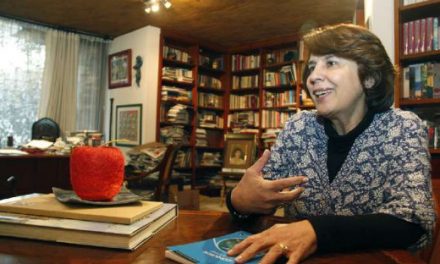 Santiago Castellà, director of the Chair Tarragona Smart Mediterranean City of the Rovira i Virgili University and full academician of the Royal European Academy of Doctors-Barcelona 1914 (RAED), participated as a speaker at the 11th International Conference of Universal and Criminal Justice held on July 17 in Barcelona by the Centre for Legal Studies and Specialised Training of the Catalan Government under the title “Los drones como medio de obtención de pruebas para los tribunales y como armas de guerra” (The drones as a means of obtaining evidence for courts and as weapons of war). Castellà spoke at a round table with the paper “La revolución digital delante del Derecho Internacional, los Derechos Humanos y Derechos Humanitarios: impactos de un mundo en transformación” (The digital revolution in front of International Law, Human Rights and Humanitarian Rights: impacts of a changing world).
Santiago Castellà, director of the Chair Tarragona Smart Mediterranean City of the Rovira i Virgili University and full academician of the Royal European Academy of Doctors-Barcelona 1914 (RAED), participated as a speaker at the 11th International Conference of Universal and Criminal Justice held on July 17 in Barcelona by the Centre for Legal Studies and Specialised Training of the Catalan Government under the title “Los drones como medio de obtención de pruebas para los tribunales y como armas de guerra” (The drones as a means of obtaining evidence for courts and as weapons of war). Castellà spoke at a round table with the paper “La revolución digital delante del Derecho Internacional, los Derechos Humanos y Derechos Humanitarios: impactos de un mundo en transformación” (The digital revolution in front of International Law, Human Rights and Humanitarian Rights: impacts of a changing world).
 Professor of International Public Law and International Relations, the academician of the RAED addressed the challenges established by new technologies from a legal point of view, mainly in relation to Human Rights and Criminal Justice. This year the drones were the protagonists of the 11th edition of the International Conference of Universal and Criminal Justice. With the drones we can see the possibility of obtaining evidence through photographs, sound or videos and transmitting this information in real time, which makes them an important tool to obtain evidence to be used in the courts. But its use also raises possible collisions with fundamental rights, such as privacy and privacy.
Professor of International Public Law and International Relations, the academician of the RAED addressed the challenges established by new technologies from a legal point of view, mainly in relation to Human Rights and Criminal Justice. This year the drones were the protagonists of the 11th edition of the International Conference of Universal and Criminal Justice. With the drones we can see the possibility of obtaining evidence through photographs, sound or videos and transmitting this information in real time, which makes them an important tool to obtain evidence to be used in the courts. But its use also raises possible collisions with fundamental rights, such as privacy and privacy.
The use of drones as a weapon of war was raised in the debate from two sides. The positive would be an intervention against specific objectives without causing civilian casualties or collateral damage. The negative, its perverse use, its “mistakes” and even its possible indirect manipulation.




